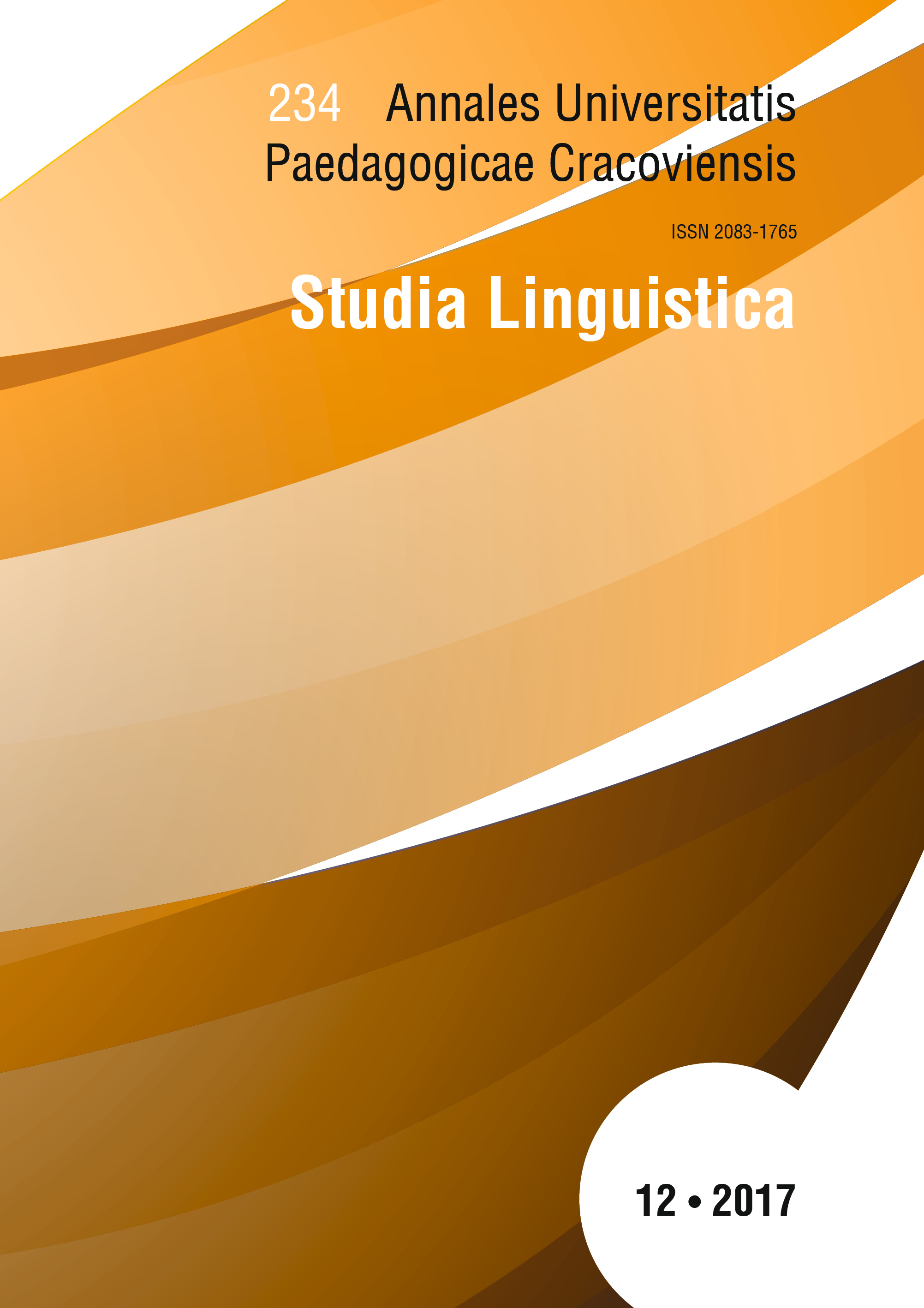Pojęcie czułości w rozumieniu papieża Franciszka na tle danych językowych
Main Article Content
Abstrakt
The paper, inspired by the apostolic exhortation Amorislaetitia (2016) by Pope Francis, is devoted to the notion of tenderness in the Polish language, as compared with its equivalents in other European languages, mentioned in the translations of Pope Francis’ exhortation: Italian tenerezza, French tendresse, English tenderness, German Zärtlichkeit, Russian nežnost’. Etymologies of these words, not only from the Romance languages, but also German and Russian names, are associated with the notions like gentleness and fragility, which refer to the attitude towards another person, expression of the feeling, as well as the gentle way of treating another person. In that respect, Polish differs from the other languages. The image of tenderness shaped by the Polish word czułość (etymologically connected with the verb czuć - tofeel) directs attention to the aspect of sensitivity and empathy with another person, focusing on the condition, situation in which the person finds himself/herself, as well as their needs. It is an important aspect, which is underestimated during the first reflection on this notion, as it is dominated by the meaning of expression of the feeling.
Downloads
Article Details
Autor, zgłaszając tekst do redakcji czasopisma „Annales Universitatis Paedagogicae Cracoviensis. Studia Linguistica”, zaświadcza, iż jest on rezultatem wyłącznie jego własnej twórczości, że treść artykułu nie była dotychczas publikowana oraz że utwór nie narusza w żadnym stopniu praw autorskich ani praw pokrewnych innych osób, jak również innych praw osób trzecich, a także, że niczyje prawa do utworu (lub jego jakiejkolwiek części) nie zostały pominięte. Po podpisaniu umowy prawa majątkowe do opublikowanych materiałów zostają przeniesione na Wydawnictwo Naukowe Uniwersytetu Komisji Edukacji Narodowej w Krakowie.
Rocznik „Annales Universitatis Paedagogicae Cracoviensis. Studia Linguistica” to czasopismo o otwartym dostępie, a cała jego zawartość jest udostępniana bezpłatnie dla użytkowników i instytucji na zasadach licencji Creative Commons CC-BY-NC-ND 4.0 (uznanie autorstwa, użycie niekomercyjne, bez utworów zależnych). Na podstawie tej licencji autorzy zgadzają się, że ich prace mogą być zgodnie z prawem ponownie wykorzystywane do jakichkolwiek celów, za wyjątkiem celów komercyjnych, bez konieczności uzyskania uprzedniej zgody ze strony autora lub wydawcy. Każdy może prace te czytać, pobierać, kopiować, drukować, rozpowszechniać oraz przetwarzać, pod warunkiem poprawnego oznaczenia autorstwa oraz oryginalnego miejsca publikacji. Publikowanych tekstów nie można wykorzystywać do tworzenia utworów zależnych (np. do tłumaczenia ich i publikowania w innym języku bez zgody wydawcy). Jest to zgodne z definicją otwartego dostępu BOAI (Budapest Open Access Initiative) „Studia Linguistica”nie pobiera opłat za składanie artykułów ani ich przetwarzanie.
Autor, przesyłając artykuł do redakcji „Studia Linguistica”, bezwględnie zgadza się z poniższymi punktami:
-
Oświadczam, że jestem Autorem lub Współautorem nadesłanego tekstu. Przesłany tekst nie był nigdzie publikowany, jest całkowicie oryginalny i nie narusza w żadnym stopniu praw autorskich ani praw pokrewnych innych osób, jak również innych praw osób trzecich, a także, że niczyje prawa do utworu nie zostały pominięte.
-
Oświadczam, że nadesłany tekst nie został złożony do recenzji lub/i publikacji w innym czasopiśmie.
-
Przyjmuję do wiadomości, że Autor ponosi pełną odpowiedzialność za każdy przypadek plagiatu, niezależnie od tego, czy został on wykryty podczas procesu recenzji, czy po publikacji w „Studia Linguistica”.
-
Oświadczam, że ponoszę pełną odpowiedzialność finansową i prawną za wszelkie roszczenia związane z utworem.
-
Potwierdzam uznanie wszystkich źródeł danych wykorzystanych i cytowanych w badaniach.
-
Potwierdzam, że artykuł został wykonany z należytą starannością zgodnie ze standardami edytorskimi „Studia Linguistica”.
Bibliografia
Amoris laetitia. Posynodalna adhortacja apostolska papieża Franciszka, 2016, Kraków.
Google Scholar
Bartmiński J., 2006, Językowe podstawy obrazu świata, Lublin.
Google Scholar
Bartmiński J., 2014, Jakie wartości współtworzą językowy obraz świata Słowian?, [w:] Tegoż, Polskie wartości w europejskiej aksjosferze, Lublin, s. 21–28.
Google Scholar
„Etnolingwistyka. Problemy języka i literatury”, 2008–2013, red. J. Bartmiński, t. XX–XXV.
Google Scholar
Ernout A., Meillet A., 1939, Dictionnaire étymologique de la langue latine, Paris.
Google Scholar
Kluge F., 1973, Etymologisches Wörterbuch der deutsche Sprache, Berlin–New York.
Google Scholar
Šapošnikov A.K., 2010, Etimologičeskij slovar’ sovremennogo russkogo jazyka, t. II, Moskva.
Google Scholar
Wierzbicka A., 1998/2007, Understanding culture through their key-words: English, Russian, Polish, German, Japonese, New York [tłum. polskie: Słowa klucze. Różne języki – różne kultury, tłum. I. Duraj-Nowosielska, Warszawa 2007].
Google Scholar
Zdancewicz A. i in. (red.), 1861, Słownik języka polskiego, t. I, Wilno [Słownik wileński].
Google Scholar
